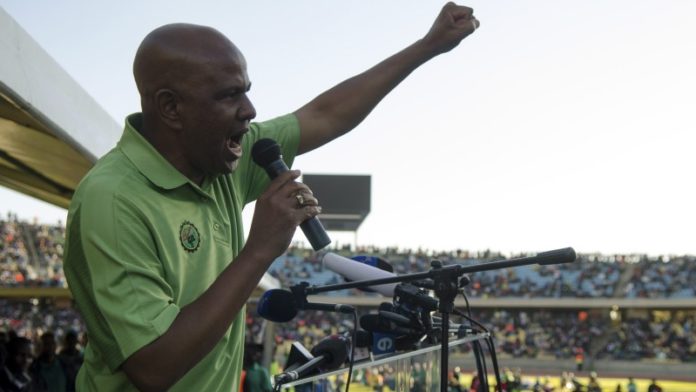
THE requirement for unions to run a secret ballot requiring majority support before declaring a strike recently became law in South Africa.
The secret ballot goes back to negotiations at the National Economic Development and Labour Council (Nedlac) in which employers traded agreement on the minimum wage for an undertaking for a secret strike ballot.
For employers, the strike clause was important in order to enhance collective bargaining especially as one alternative could be a violent strike – something of a norm, especially in the mining sector. The secret strike ballot was also aimed at protecting employees from forced participation in a strike.
Reacting to the secret strike ballot, the trade union federation SAFTU, and its prominent member union, the metal and mining union NUMSA, strongly criticised the new provision, arguing that it was draconic and restricted workers’ rights.
On these grounds, the union is to approach the Constitutional Court in an effort to have the amendment set aside.
The trade union federation COSATU meanwhile, and its prominent member union, the mining union the National Union of Mineworkers (NUM), have welcomed this effort to ‘democratise the workplace’. In fact, NUM has challenged NUMSA to conduct a secret ballot among its members to determine whether members favour the application to the Constitutional Court!
The militant mining union, the Association of Mineworkers & Construction Union (AMCU), in turn, is of the opinion that the legislative amendment was aimed at restricting its growth.
The secret ballot amendment had not come into effect at the time of AMCU’s failed five-months strike at Sibanye-Stillwater earlier this year in which members did not get one cent more than the non-striking members.
In this case, the strike ballot took place by means of a show of hands at a mass meeting, in accordance with AMCU’s constitution.
Typically at such a meeting there are about 12 ringleaders, called the ‘A Team’, placed strategically in the crowd to support the strike vociferously during the vote and to intimidate members who are not putting up their hands. The next task of the A Team, who are rewarded generously, is to give the strike momentum by continuously inciting workers and intimidating non-strikers at workplaces and hostels.
A successful strike is one with high participation, of short duration, and during which above-average increases are granted.
Therefore, the more destructive and violent the strike, the better are the chances of success, and this is why sabotage, arson and murder form part of the process. Workers who are disillusioned by an earlier violent strike where intimidation was the order of the day, would try to take leave (even unpaid) or seek safety when the strike starts.
Such a destructive strike usually is in the political interest of union leaders who want to enhance their profile or where union leaders have an axe to grind with the employer. Competition among unions also leads to violent strikes as one union attempts to lure away members of the opposition union – even though striking workers pay the price through the “no work, no pay” principle.
The fact that union members now may secretly express their wishes not only means that the democratisation of labour relations is promoted, but that the families of union members can be protected from the financial consequences of an unnecessary strike. Furthermore, job losses that usually follow a violent strike, will now be prevented.
The present impasse in the platinum sector negotiations between the platinum mining houses and AMCU is likely to be the first democratic test for AMCU members when they will have to vote on a strike. I only hope that workplace democracy will not be characterised by ill-considered and ignorant voting as in political democracy.
Gideon du Plessis is General Secretary of Solidarity











